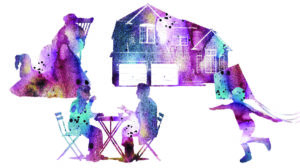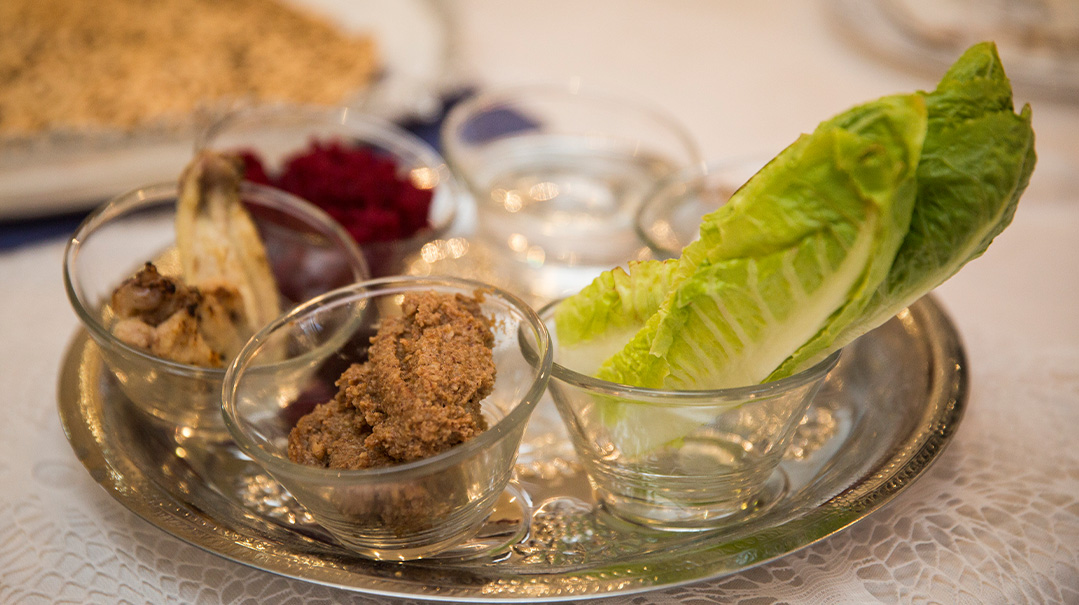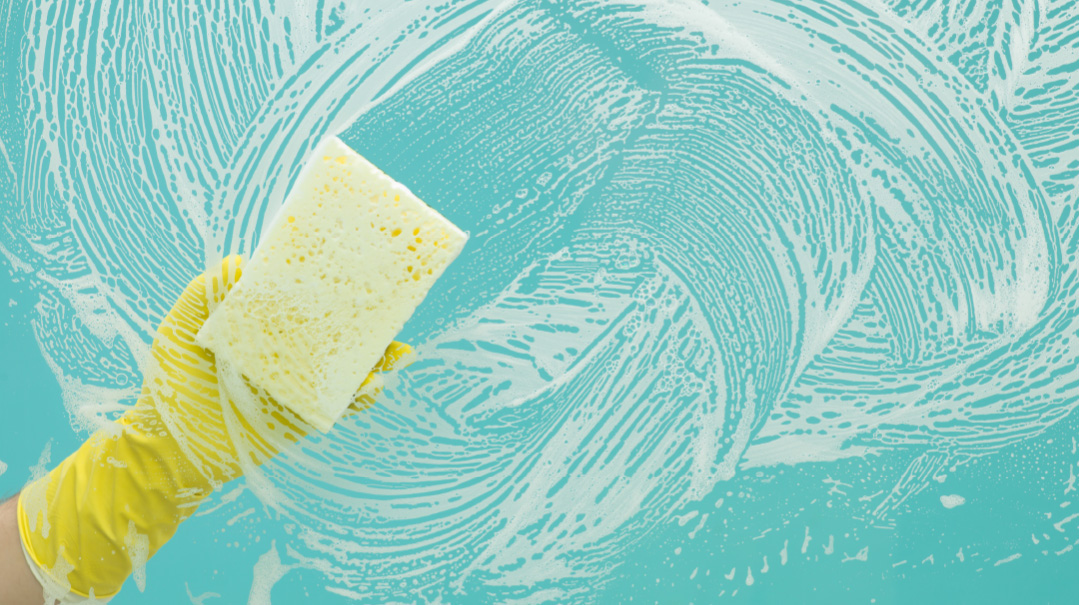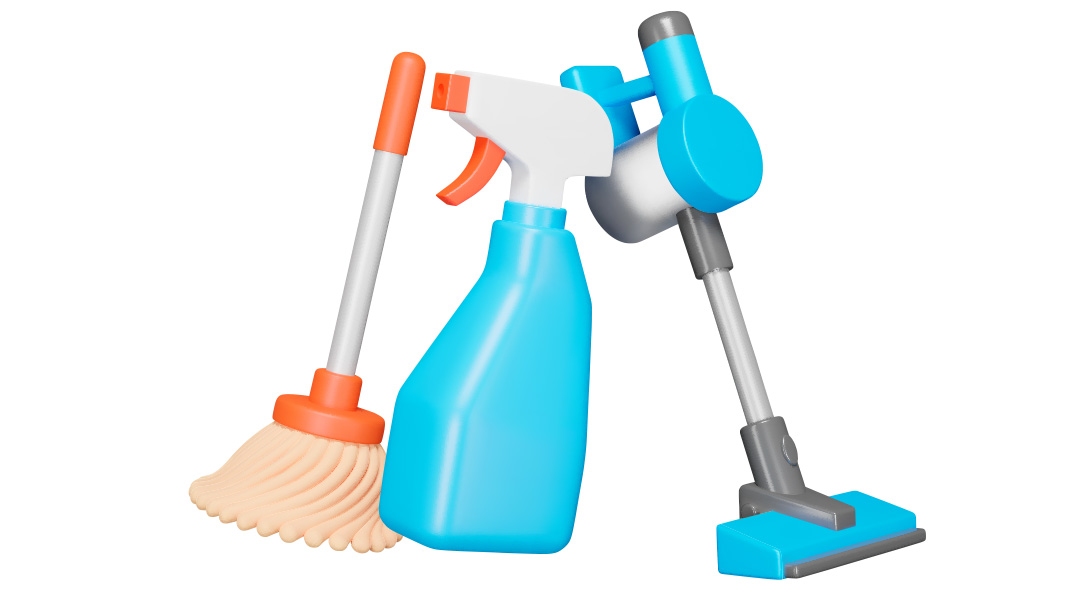Searching for Eliyahu
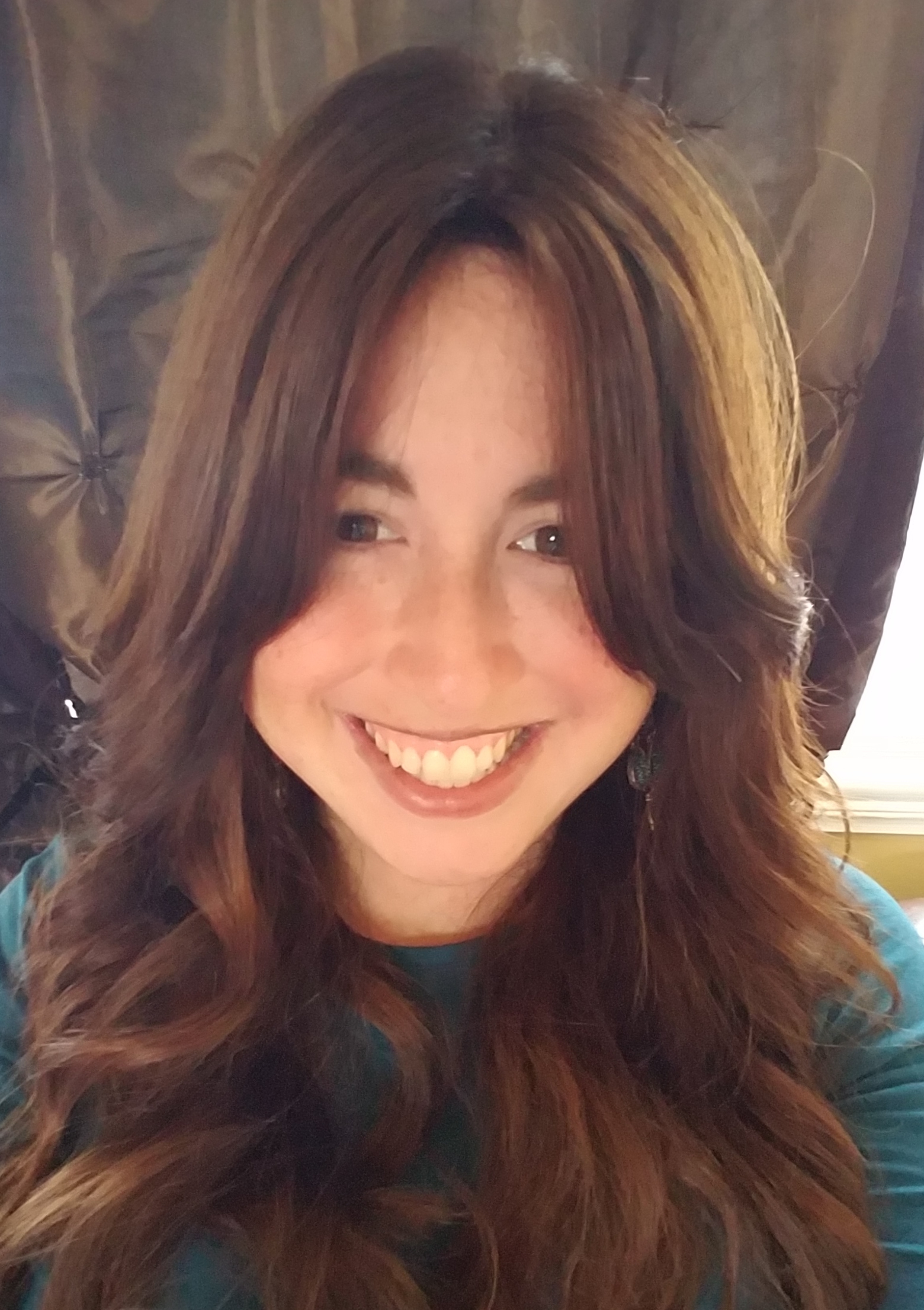
I found Eliyahu Hanavi in line at the aquarium
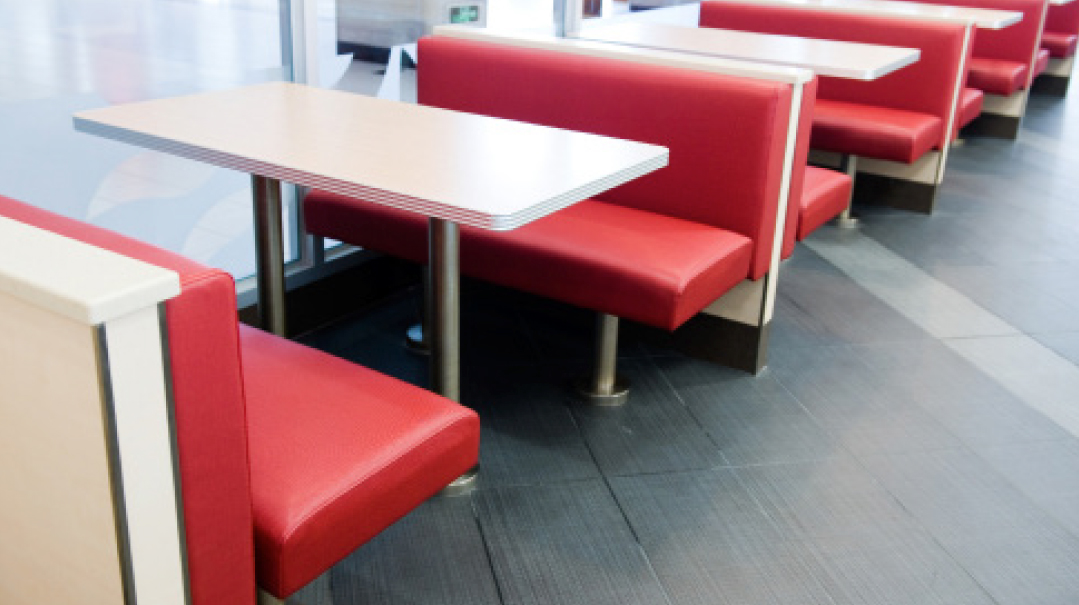
A series of unexpected medical issues and life challenges this year had led me to emotional exhaustion by the time my husband floated the idea that our family could benefit from a brief change of scenery. The next thing I knew, we’d decided to spend winter break in Arizona.
I was hesitant to go, worried that we couldn’t quite escape our woes via airplane, but my husband convinced me that it would do us all good.
By the time I found myself gazing upon rows of gorgeous cacti as we left the Phoenix airport, I’d signed on to his theory. The feel of sun on our skin, the happy smiles on our children’s faces as they tossed me the winter coats they’d needed just hours before — I was convinced our streak of tzaros was finally behind us.
We popped by some grocery stores; arrived at our vacation home rental in a car filled to the brim with suitcases, grocery purchases, and positive energy; and hopped into the private pool that greeted us in the yard. After swimming enough to work up an appetite, we headed out to dinner at a local restaurant. Last year, we’d made the rookie mistake of just walking into a local restaurant during “yeshivah week” and expecting to find an open table; this year, we’d learned from our experience and made the reservation a week prior.
We quickly learned that getting a reservation is only half the dining-during-peak-time battle. When we arrived, the neat “reserved” sign beckoned to us from a gleaming table. But we soon discovered it would take 15 minutes to get menus, another 15 minutes to get the attention of any wait staff, another 15 minutes to order, and at least another 30 minutes to get our food.
An hour in, my exhausted children had officially lost it. My four-year-old was done with being stuck in a booth. Trying to get him to sit still, we ordered some soup for him, since we knew it could be brought out quickly. Our perceived clever solution turned out to be a big, boiling mistake. The next thing we knew, he squirmed a little too vigorously, an errant limb landed at the wrong angle, and he was covered in hot soup.
The packed room fell silent, save for my son’s screams. Suddenly, no one cared which table got its sesame chicken order first. Everyone seemed to be holding their breath as I grabbed two pitchers full of ice water, yelled for my husband to carry my son outside, and then poured the water on him, soaking him from top to bottom.
Every account, tip, and article I’d ever heard or read about burns all jumbled together. That all-too-familiar feeling of panic set in. Was I supposed to use ice, or only cold water? Should I remove his clothing so that I could place cool materials directly on the wound, or keep a barrier between them so as to not freeze the skin? Was only welting a worrisome sign, or was redness also alarming? Was he now red from heat or from the pitcher full of ice?
Many restaurant patrons followed us outside, calling out their own conflicting opinions, as I tried to comfort my son and process what had just happened. It was then that a malach stepped out from the crowd.
“Call 911!” he directed one bystander. “Get a bucket of ice water and clean towels from a busboy!” he told another. “You, go straight to the kitchen!” he directed a third. “Tell them to drop whatever they’re doing and slice raw potatoes to put on this boy’s skin.”
He turned to us. “A burn unit doctor once told me to use potatoes on a burn until the professionals arrive, since they can absorb the heat of a burn.” He continued to coordinate care and comfort us until the emergency services arrived.
As the ambulance bundled up my beautiful boy to whisk us to the county burn unit, a thought crossed my mind, and I turned to our malach-in-residence. “Hey, I didn’t notice you in the restaurant. How’d you end up here?”
He shrugged. “I’m a tourist. I put in a take-out order, but just when I got here to pick it up, I got a message that the restaurant was so busy that they’d canceled my order. I was about to walk back to my car when you burst out of the restaurant with your son.”
The Hashgachah felt almost eerie; I don’t know what we would have done without him. Meanwhile, b’chasdei Hashem, my son’s beautiful skin was fine. By the time we got to the hospital, the fireman told me that it was no worse than a sunburn. No blistering, no drugs or intervention, just a very relieved and thankful set of parents, a parting gift of overpriced emergency room-billed Aquaphor and, of course, the ambulance and hospital bills looming on the horizon. At almost $2,000 after insurance, it was definitely in the running for the world’s most expensive bowl of soup.
The next morning, my husband went to the local minyan and discovered that we’d achieved celebrity status. After minyan ended, throngs of strangers came up to him to say they had been at the “soup scene” the night before and they’d been worried about our little guy ever since. One man told my husband he had even dreamed about our son that night. I was so touched by the outpouring of love and support.
“That’s beautiful,” I told my husband, “but did you pull our hero aside and thank him?”
“You know what,” my husband mused, “it feels like he was the only person from the restaurant who I didn’t see there….”
I brushed it off, confident that we’d have another opportunity to thank him. “No worries, we’ll run into him elsewhere.”
The only thing was that we didn’t. Over the ensuing days, people seemed to regularly approach us at other restaurants or local tourist attractions to inquire about our soup-sloshed-wonder, but we never ran into our hero. It was starting to bug me. I desperately wanted to thank him properly.
During a beautiful desert drive, after mulling it over again, I turned to my husband. “Do you think he was Eliyahu Hanavi?” I asked. “He appeared out of nowhere, helped us in the nick of time, and then disappeared! Isn’t that a classic Eliyahu story right there?”
My husband practically laughed me out of the car. “I doubt Eliyahu Hanavi had a New York accent.”
But after that conversation, I only half-teasingly kept referring to the mysterious man as Eliyahu.
Until we finally ran into him again — in line for aquarium tickets. “I guess you’re not Eliyahu Hanavi after all,” I said as I walked toward him and told him about our desert conversation. We shared a good laugh, but were glad to finally give him the thanks he deserved.
“The way you stepped in to our disaster and treated it like your own was other-wordly,” I told him. “May you get so much sechar for all the help and comfort you provided in such a scary situation.”
I thought about the incident for a long time, especially when I petted the smooth back of my four-year-old as I settled him in to sleep every night. Our story could have ended so differently. Was it the raw potatoes that had helped him or the ice water? Was it because we’d called 911 so quickly? Or was it the lone voice that had risen above the mass hysteria and coordinated our efforts?
Eliyahu Hanavi did not die, but ascended to Heaven alive in a Chariot of Fire. He perfected himself to such a degree that he was permitted to become a dual-citizen of Heaven and earth. His body remained as a garment he could don whenever he needed to return to Our World.
Stories in the Gemara involve him dressing up in disguise as an old man, fiery bear, ugly traveler, and doing everything from learning b’chavrusa with Sages, and taking mere mortals on visits to Gan Eden, to stepping in as a healer, rescuer, and advocate for us in the most precarious of situations. His memory accompanies our Havdalah, and he’s an honored guest at our brissim.
But where is he now? While I cannot offer a GPS location, I truly feel he is here, at least in spirit. Once we realize that nothing’s a random occurrence, we see Hashem is constantly putting helpers in our path in the right places at the right times. That is, until the real Eliyahu Hanavi returns. Rashi, in parshas Bechukosai, comments on “V’zacharti es brisi Yaakov” that there are five times in the Torah that Yaakov’s name is written with a vav, which parallel the five times that Eliyahu’s name is written without a vav. Rashi explains that Yaakov “took” a letter from Eliyahu’s name, holding it as collateral until Eliyahu brings the news of the final Geulah to Yaakov’s descendants.
If we look around, we’ll notice that we have “Eliyahus” in our own lives. It’s the stranger who offers up a wise one-liner in a difficult moment that gives us perspective. It’s the person who helps you when you’re buckling under the weight of a giant flat of water bottles you’re trying to load into your car trunk. It’s in the guy who has his take-out canceled right as he drives up to the restaurant, wondering why he schlepped all the way there for nothing, and then rushes into a crisis to help save your son’s skin.
And when we ourselves choose to don the role of a baal chesed and step up in another’s moment of need, perhaps we’ll remind Eliyahu that we’re waiting for him to come claim that missing vav.
As the pandemic rages, I’m still stuck at home. But there are malachim at my doorstep: the neighbor who drops school lunches on my front stoop, the friend who offers toys she doesn’t need anymore, the mother of the latest quarantine bar-mitzvah boy in my son’s class who dropped off T-shirts and mini-seudah meals to each classmate. “Why should all these boys miss out? It’s not only my son missing his bar mitzvah, it’s all the boys missing their friend’s celebration,” she explains.
I’m in awe every time I open the door and see another delivery of love, friendship, connection. We are lonely, but in a nation of Eliyahus, we are not alone.
And so, when you see your Eliyahu-suspect in line at the aquarium, what does it all mean? No need for a double take; it’s all part of an eternal story line, each scene bringing us closer to the glorious ending, to Eliyahu’s final mission: bringing us all home.
(Originally featured in Family First, Issue 695)
Oops! We could not locate your form.




